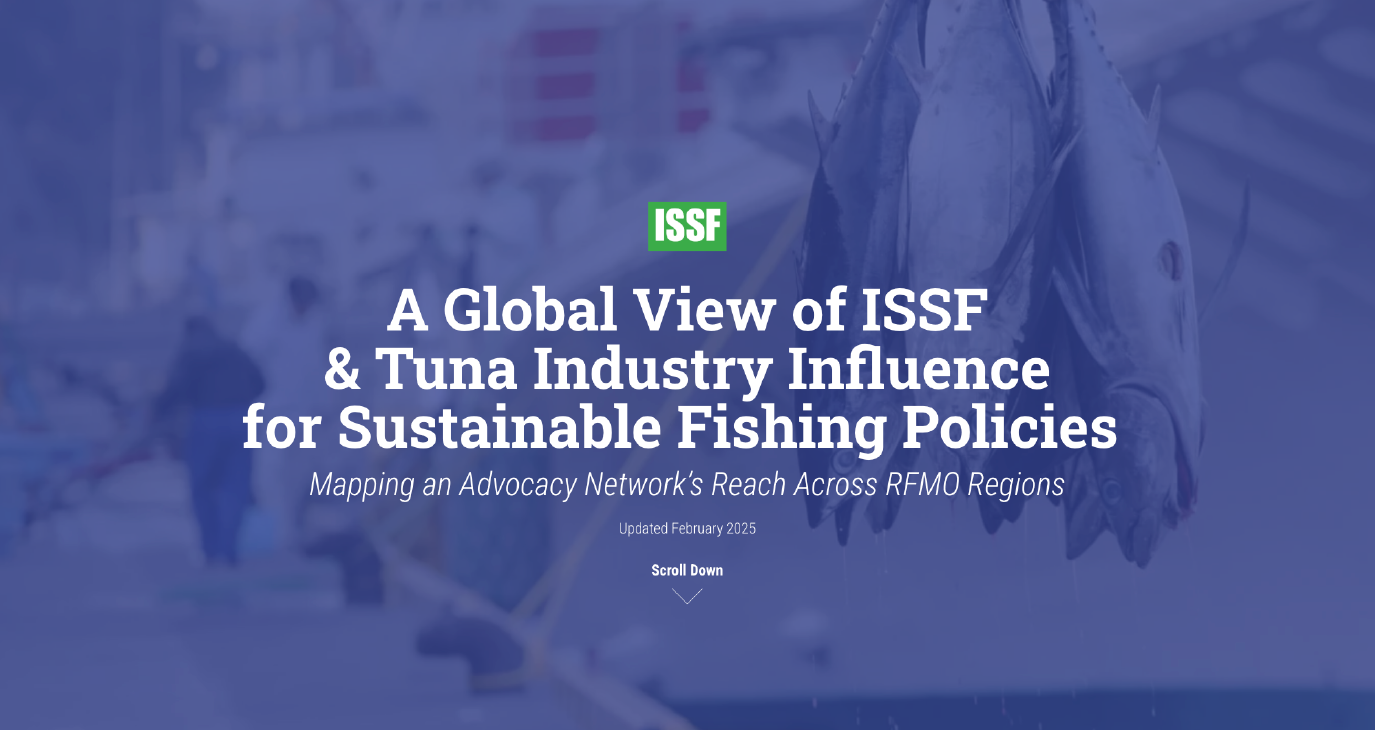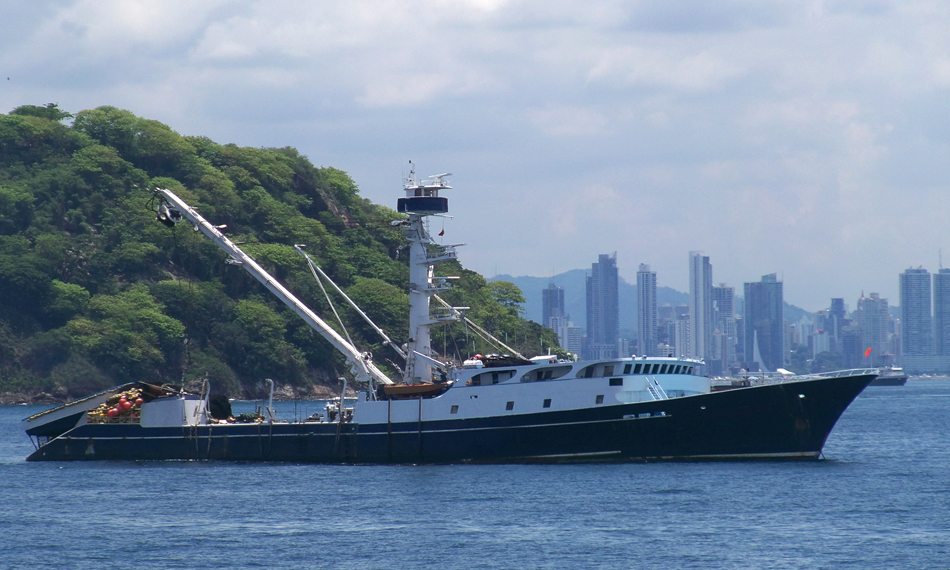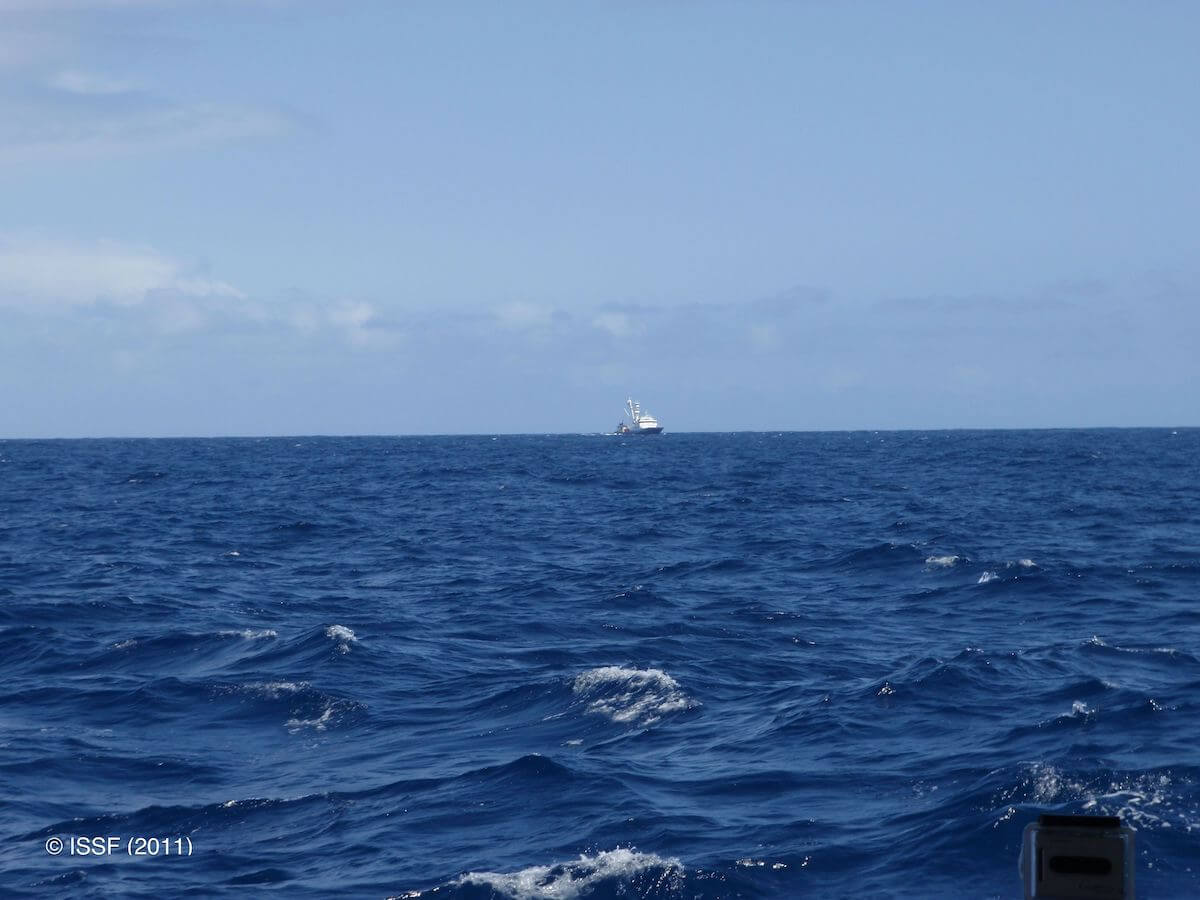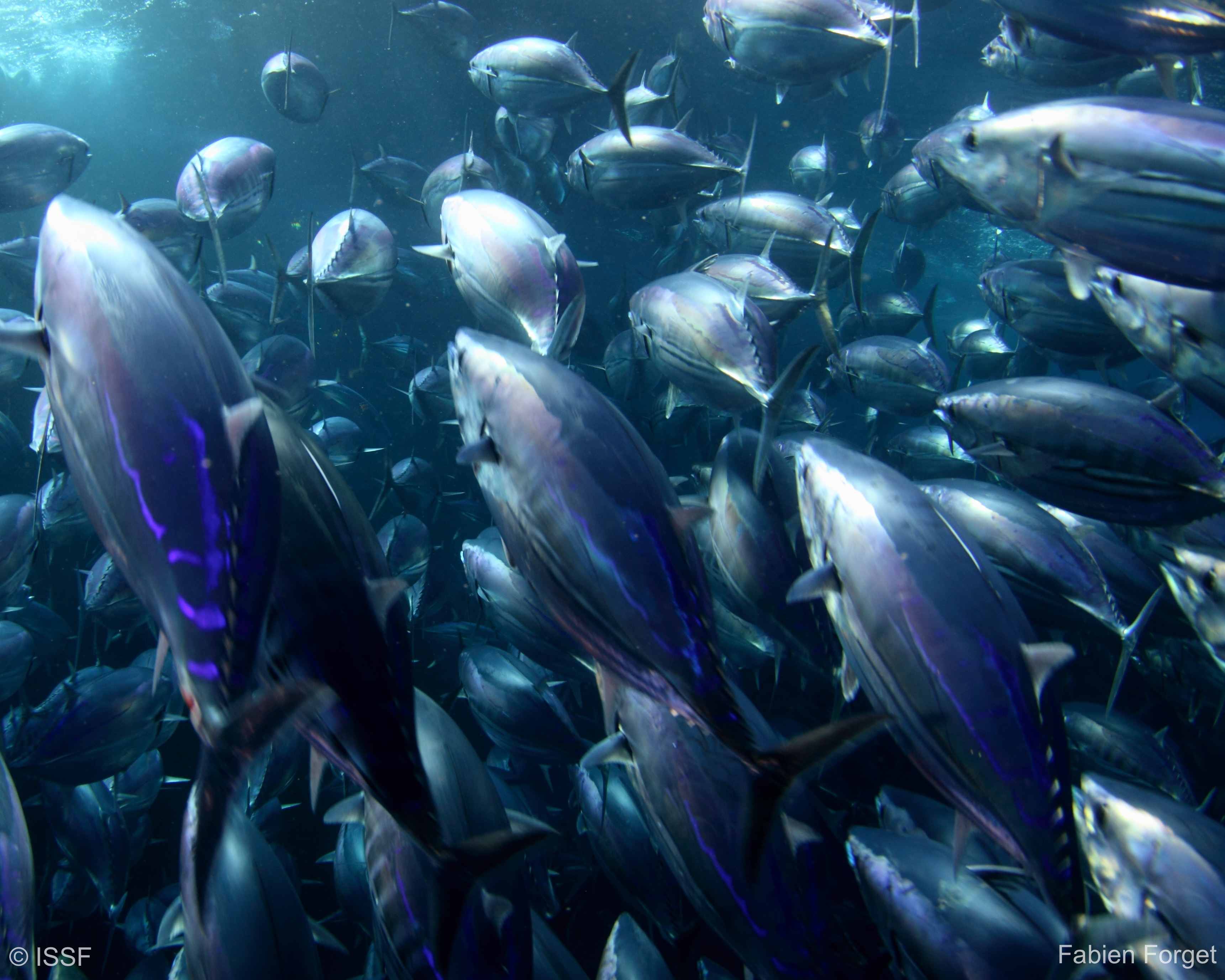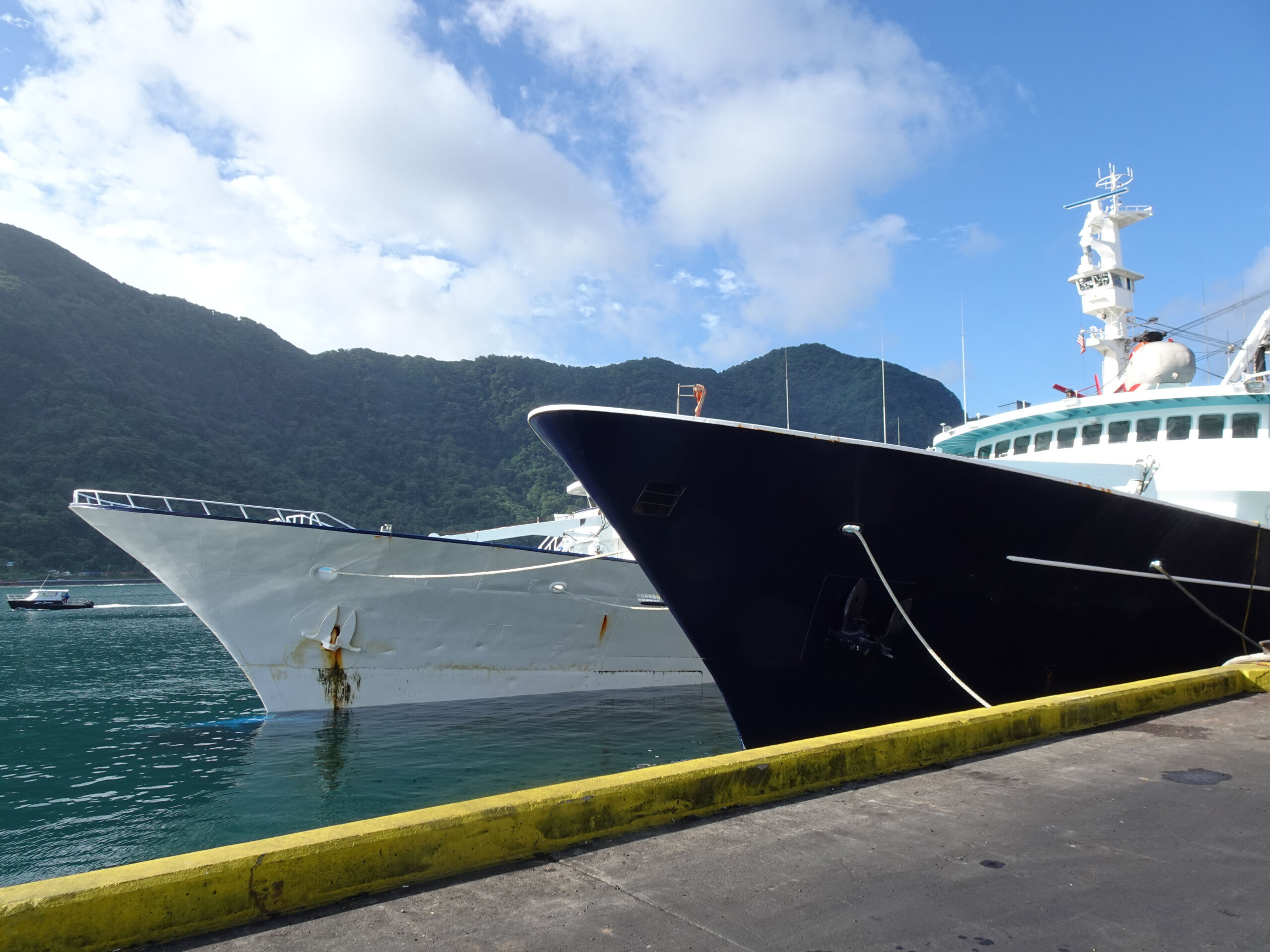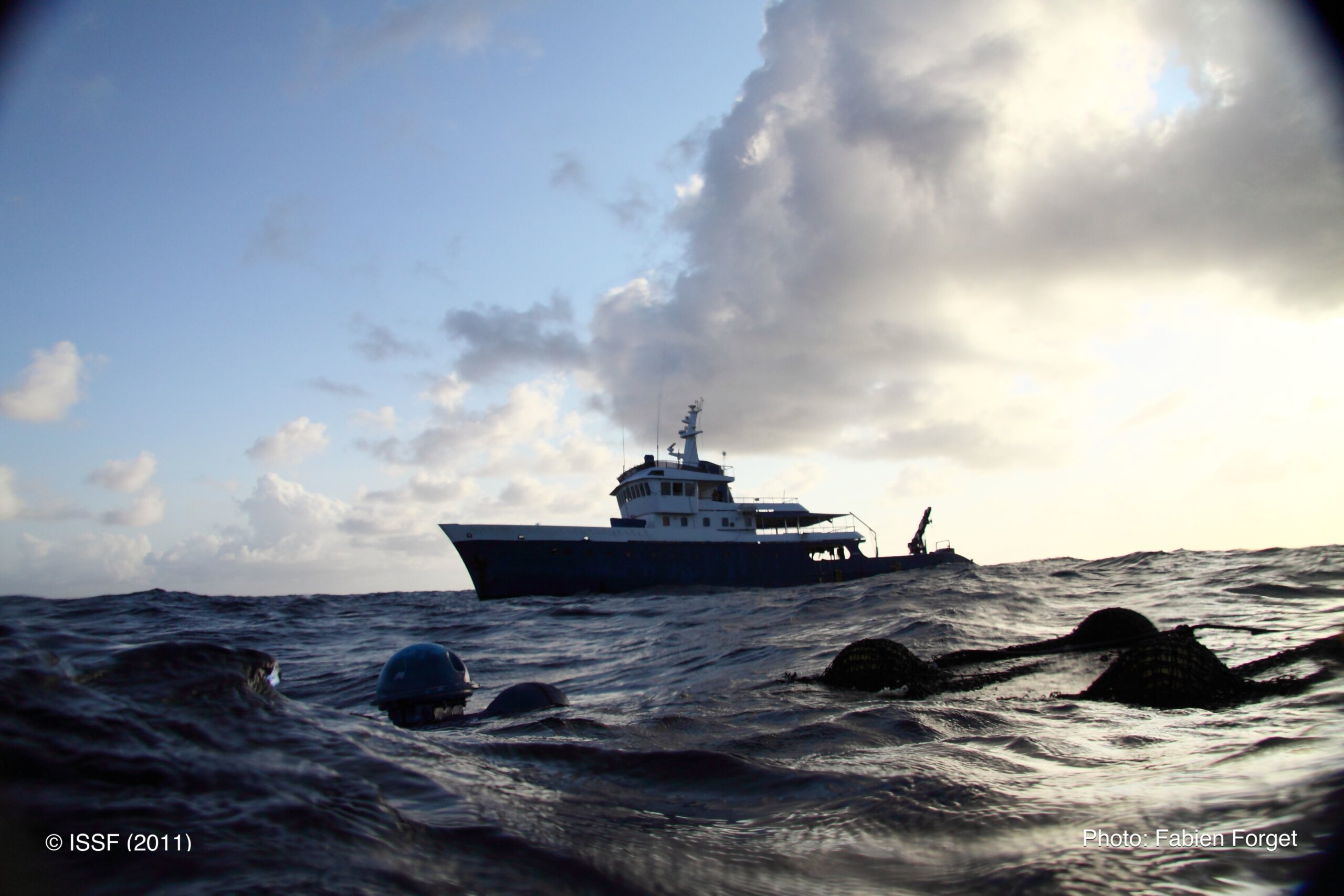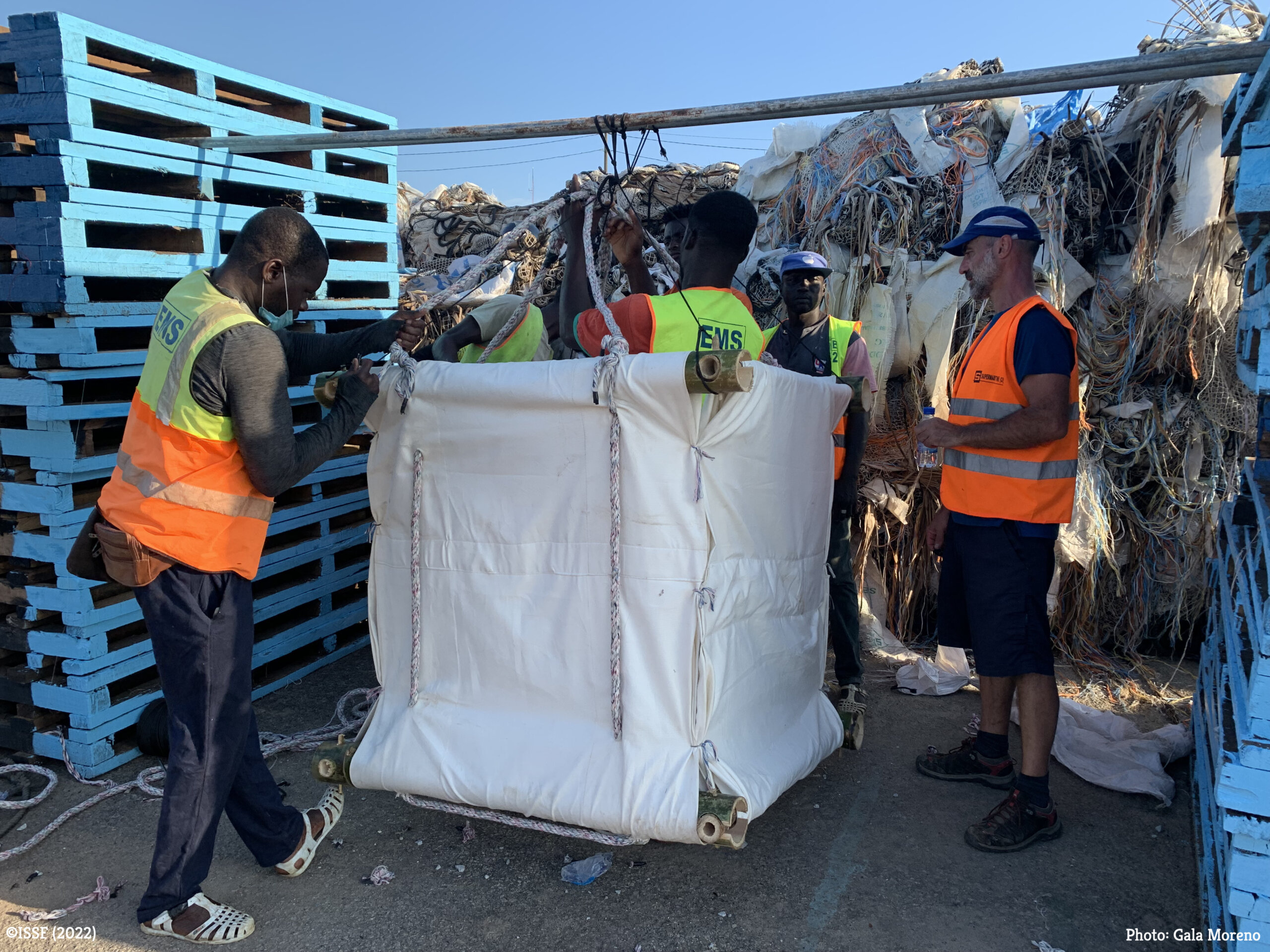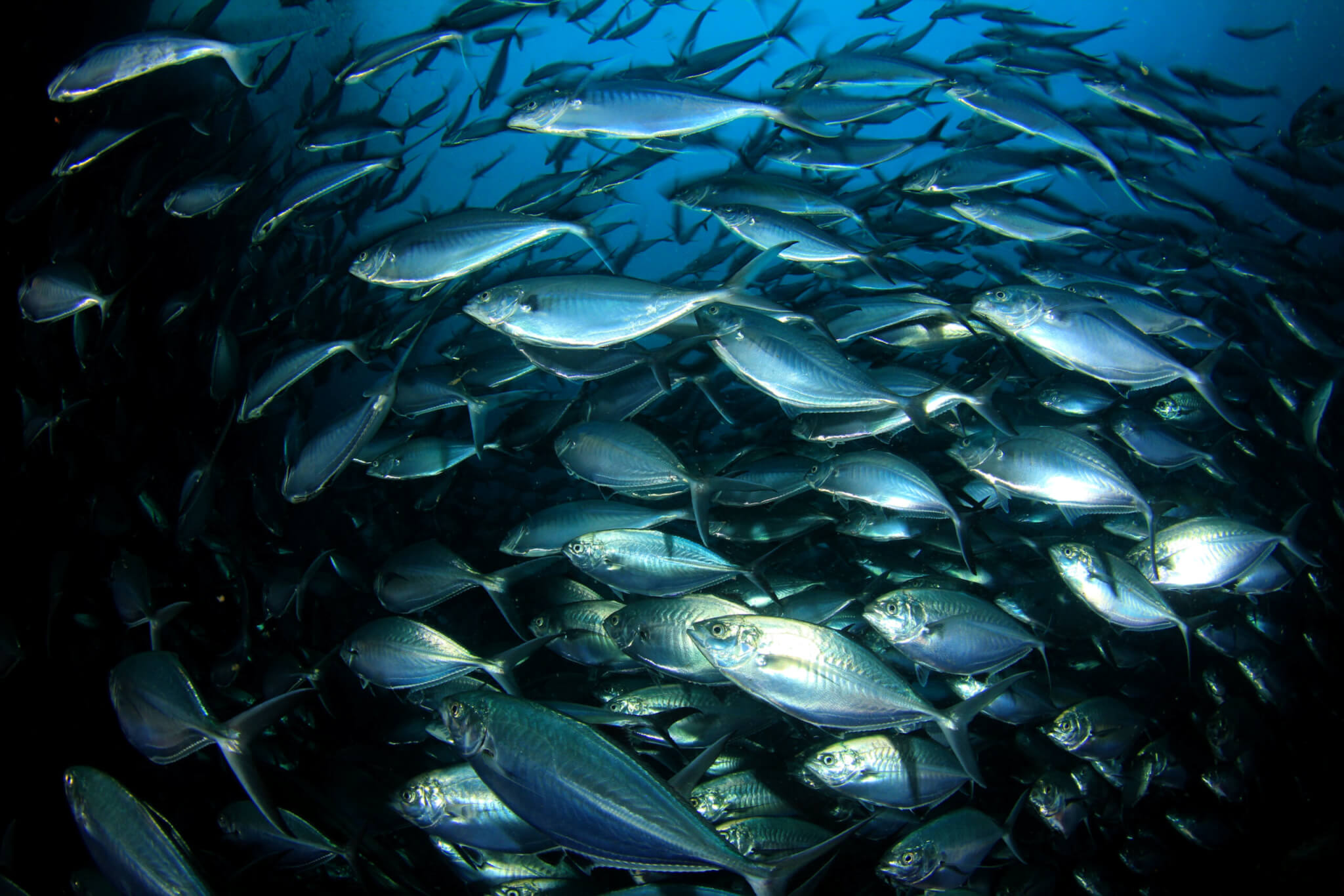The International Seafood Sustainability Foundation (ISSF) has published a comprehensive step-by-step guide that shows commercial tuna fishers how to build “jelly-FADs” — an innovative, nearly 100% biodegradable and non-entangling design for fish aggregating devices (FADs).
For many years, FADs have been a widely used fishing strategy due to their high efficiency for catching tuna. About 38% of the global tuna catch, which totaled 5.2 million tonnes in 2022, is made with FADs. But conventional FADs can have negative impacts, such as contributing to overfishing, bycatch, and marine pollution.
To reduce FAD fishing’s effects on non-target marine animals and ocean ecosystems, ISSF scientists developed the jelly-FAD in collaboration with physical oceanographers from the Institut de Ciències del Mar (CSIC) and tuna fleets — testing and refining the design through workshops, lab research, and at-sea trials in real fishing conditions.
Inspired by the neutral buoyancy of jellyfish, the jelly-FAD design not only is made without netting but also is almost completely biodegradable, and it offers additional sustainability and durability advantages over previous non-entangling FAD (NEFAD) and biodegradable FAD (bio-FAD) designs.
Practical Guide for Tuna Fishers
To help facilitate broad fleet adoption of jelly-FADs, ISSF’s Jelly-FAD Construction Guide provides detailed instructions and visuals for each step in the construction process. These steps include:
- Prepare the Canvas – canvas sheets are part of the jelly- FAD “drogue” or cube
- Build the Drogue (Cube) – a three-dimensional “drogue” or cube keeps the FAD in the fishing grounds
- Add a Submerged Buoy – a submerged buoy works for flotation
- Build the Raft – the structure must resist wind and ocean wave drag forces
- Make the Flotation Component – a water-line flotation piece
The guide also recommends how to deploy and fully transition to jelly-FADs.
“The Jelly-FAD Construction Guide shows tuna fishers how to build what we believe is the most sustainable non-entangling FAD to date,” said Dr. Gala Moreno, ISSF senior scientist. “The jelly-FAD represents a new concept in drifting FADs (DFADs), whose structure and materials have been relatively static for decades. To make jelly-FADs, you do not need to have unusual materials, special equipment, or advanced carpentry skills. We intend the jelly-FAD to be as simple and affordable as possible for fishers around the world to build.”
Our research team designed jelly-FADs to greatly reduce the need for plastic in FAD construction. Fishers have options in what kinds of biodegradable materials they choose: they can build jelly-FADs with bamboo, canvas, cork, clay, and cotton rope, for example. In contrast, conventional FADs for decades have been made with netting materials, plastic, and metal.
“The jelly-FAD we present in the Guide is more of a model for tuna fishers than a fixed design. We expect fishers to help evolve the concept,” explains Moreno. “The current drogue or cube could potentially be replaced by a cylinder or another type of three-dimensional structure, for example. But the concept of neutral buoyancy should be maintained so that the FAD, which is made of organic materials, can last as long as fishers need, which varies from four months to one year depending on the fleet. Recent trials with the jelly-FAD in the Eastern Pacific Ocean showed fishers were still fishing on them after one year at sea. Periodic repairs on jelly-FADs may allow them to last longer.”
Jelly-FAD Training Workshops, Research Partners, and Funders
Moreno and colleagues have been introducing the jelly-FAD model to fishers at workshops worldwide. Tuna fleets interested in learning more about the jelly-FAD or requesting training can contact ISSF at [email protected].
ISSF partnered with Ugavi, Caroline Fisheries Corporation, and Pevasa fleets on the initial stages of the jelly-FAD design and testing process, with contributions from Dr. Lauriane Escalle and James Wichman at the Pacific Community (SPC), Joaquín Salvador at the Institut de Ciències del Mar (CSIC), and Iker Zudaire at AZTI.
ISSF’s jelly-FAD research was supported by the Global Environmental Facility (GEF) through the Common Oceans Tuna Project, implemented by the Food and Agriculture Organization (FAO), which is a unique and innovative partnership working towards transformational change in tuna fisheries management and biodiversity in areas beyond national jurisdiction. Additional funders are ISSF, National Oceanic and Atmospheric Administration (NOAA) fisheries, and the Basque Government.
ISSF Web Feature Explores Challenges and Solutions in FAD Fishing
Complementing the Jelly-FAD Construction Guide is “Fresh Thinking About FADs” — a new, immersive ISSF Web feature that illustrates ISSF’s efforts to foster sustainable fishing approaches, including the jelly-FAD.
“Fresh Thinking” tells the visual story of improving FAD design and management as readers scroll through interactive content that includes animated infographics and under-water photography. It describes how FADs have changed over time; the environmental drawbacks of conventional FAD designs; the jelly-FAD characteristics that help to reduce bycatch and ocean pollution; and science-based solutions for more sustainable FAD design and management, which ultimately support healthier tuna fisheries and oceans.
“No fishing method is without impact, but collaborative efforts are making fishing with FADs more sustainable,” noted Dr. Victor Restrepo, Vice President, Science, ISSF. “We still have work to do toward improving the use of FADs while ensuring that there are plenty of fish in the sea. But we’ve made substantial progress to date. ISSF and likeminded organizations will continue to work toward achievable, science-based solutions for reducing the impact of FAD fishing on global tuna fisheries and the broader marine ecosystem.”
Download or view the Jelly-FAD Construction Guide PDF: https://dev.iss-foundation.org/about-issf/what-we-publish/issf-documents/jelly-fad-construction-guide/
View the “Fresh Thinking About FADs” interactive web feature: https://dev.iss-foundation.org/fresh-thinking-about-fads/
Learn more about FADs and ISSF’s research program on the ISSF website.
